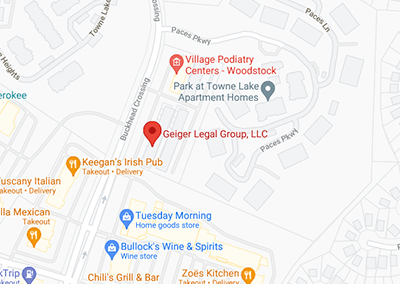
When we get sick or hurt, we trust our doctors and other medical professionals to give us the level of care we need. Because we trust these care providers, we often take for granted that we’re in capable hands anytime we visit a hospital or doctor’s office. Unfortunately, medical professionals are not perfect and make mistakes that can have life-changing or even fatal consequences.
If you suspect you may be suffering from a preventable injury or illness after receiving care from a medical provider in Woodstock, GA, you could be entitled to compensation. Let the skilled attorneys of Geiger Legal Group, LLC work hard to make it right. Contact us today to learn more about your legal options in a free initial consultation with a Woodstock medical malpractice lawyer.
Common Types of Medical Malpractice
Medical malpractice is when a healthcare provider, such as a physician, nurse, or pharmacist, provides negligent care that ultimately harms a patient. Some of the most common types of medical malpractice include the following:
- Misdiagnoses– A misdiagnosis occurs when a provider incorrectly diagnoses a patient’s condition or fails to diagnose a condition entirely. Misdiagnosis can result in improper or insufficient care, which may be harmful or even fatal.
- Delayed diagnoses– A delayed diagnosis occurs when a provider fails to correctly diagnose a patient’s condition within a reasonable timeframe. This can prevent a patient from getting the care they need in a timely manner, which can negatively affect their prognosis.
- Improper treatment– When providers treat the wrong patients, conditions, or body parts, they can cause serious harm.
- Birth malpractice– Mothers and their babies can suffer needlessly when medical malpractice occurs during pregnancy, labor, delivery, or postpartum care. Common types of birth malpractice include inadequate fetal monitoring and not ordering a timely C-section.
- Medication errors– A medication that is safe in one dosage can be dangerous in another, meaning even relatively minor medication errors can have disastrous effects. Patients who receive incorrect dosages or drugs can experience severe side effects and miss out on the benefits of a correct dosage.
- Surgical errors– Surgical errors are serious and potentially deadly. Common types of surgical malpractice include operating on the wrong patient or body part and accidentally leaving surgical implements inside of patients.
Anesthesia errors – Anesthesia must be administered in specific amounts to be effective and can be dangerous and even deadly when it is not. Anesthetic malpractice can occur when anesthesiologists or nurse anesthetists fail to review a patient’s medical history, administer incorrect anesthetics or dosages, or don’t properly monitor patients.















